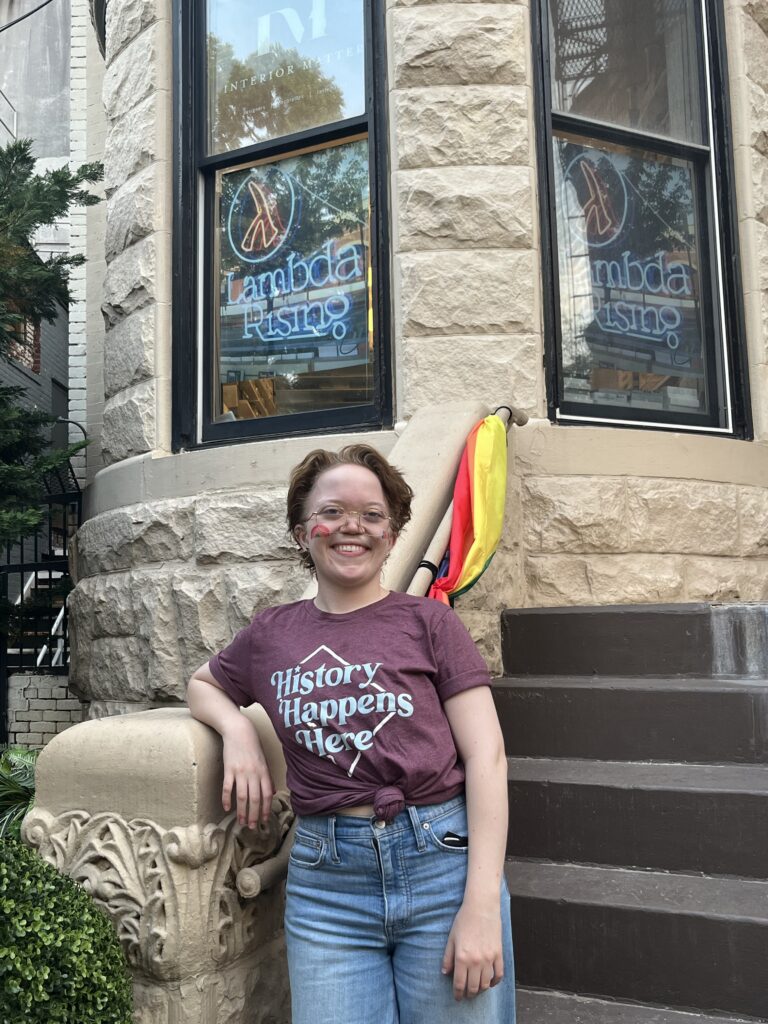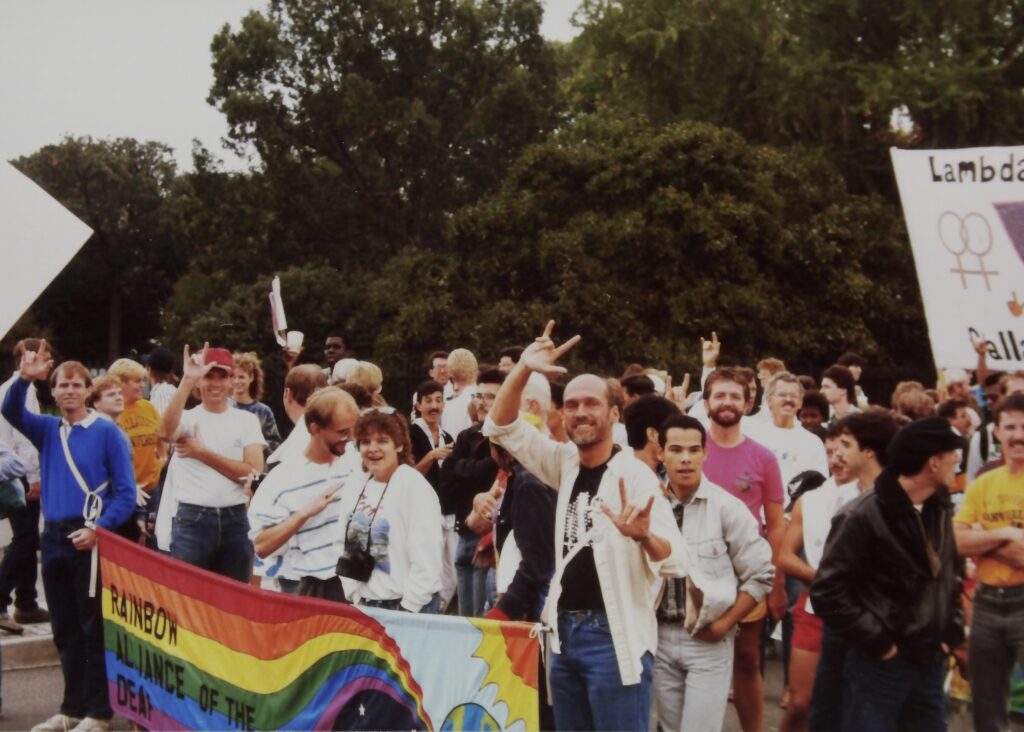
Photo of Emma O’Neill-Dietel
Can a historian’s work be linked to activism while still giving a fair and balanced account of history? As a Master’s of Public History student at the University of Massachusetts Amherst, I spent the summer confronting this question while I researched queer disability history for my degree.
In the field of public history, which refers to history outside of an academic setting, like in museums, historic sites, and digital media, scholars and practitioners have long debated how historians should walk the line between academia and activism. Because I am queer and disabled, my scholarship, activism, and identities are difficult to separate.
I spent the summer of 2025 researching and writing about disability history for the Rainbow History Project, an archive of local queer history in Washington, D.C. This research culminated in an interactive map and digital exhibit on Deaf LGBTQ+ history in D.C., along with internal resources on disability history for the archive.
Outside of work, I attended political and cultural events within D.C.’s queer and disabled communities: protests, rallies, speeches, and even a disability pride cabaret. Come August, I protested the federal occupation of D.C., too. These events were more than just how I spent my free time; they were reminders of why I wanted to work in this field in the first place.
While I was working in D.C., the White House announced an internal review of Smithsonian exhibits, which will no doubt target LGBTQ+ history, disability history, and other so-called “DEI topics.” This review follows efforts to erase queer history in schools and historic sites, attacks on trans people, an attempt to challenge gay marriage in the Supreme Court, and the dismantling of Medicaid.
In the face of all of this, it was easy to feel discouraged and feel like my work is minuscule compared to the urgent needs of my community. But gathering with friends and strangers to protest, and even to celebrate in spite of it all, gave new meaning to my academic work. People I met at community events were excited to learn about my research and pleasantly surprised to know that there are still institutions willing to fund it. I tapped into the most pressing issues facing queer and disabled people today to better understand how they relate to our historical struggles. Even the simple act of seeing and talking to fellow disabled people on a regular basis kept me grounded and reminded me how much our shared history connects us.
I often think about a set of photos I encountered in my research that show Deaf Washingtonians partying at Pride and walking in the March on Washington for Lesbian and Gay Rights from the 1970s to the 2000s. In the photos, people beam with pride while waving colorful banners and signing “I love you” to onlookers.
I also think about the disability activists who held the line with queer activists when they demanded that people with HIV/AIDS be included in the Americans with Disabilities Act. These moments in history bring me hope, joy, and recognition of a piece of myself.

The Rainbow Alliance of the Deaf and the Lambda Alliance of Gallaudet University marching in the 1987 March on Washington for Lesbian and Gay Rights (Steven Frank & Ed Knight, March on Washington Collection, Rainbow History Project)
At a recent event honoring queer disability activist Stacey Park Milbern at the Smithsonian National Museum of American History, Stacey’s friends and colleagues Yomi Young and Mia Ives-Rublee talked about the importance of ancestors in the disability community. Because many of us are born to families that don’t share our disabilities, and because our community is vast and disparate, it is up to us to seek out our ancestors and honor them.
The two speakers talked about Stacey as an ancestor and recalled how hard she worked to connect disabled people to each other in a long lineage of community. For queer people, the search for queer ancestors is much the same. It wasn’t until that event that I fully understood my desire to see myself in history as part of my search for my own ancestry.
History is political because the lives of the people and communities I study are inherently political. Queer people and disabled people are currently under continual political threats that mirror what we have endured in the past. Celebrating our history, especially when paired with action in the present, has the potential to buoy us through hard times.
My work as an aspiring historian is balanced, thoughtful, and factual. But as long as queer and disabled identities are politicized, my work cannot be neutral. Aligning with activism will remain part of my historical practice.
Emma O’Neill-Dietel is a master’s student at the University of Massachusetts Amherst studying public history at the intersection of gender, sexuality, and disability. Emma is currently a Totman Fellow with the DC History Center and has worked on public history initiatives for numerous organizations including WETA PBS, the National Park Service, National History Day, and the Smith College Historic Clothing Collection.
